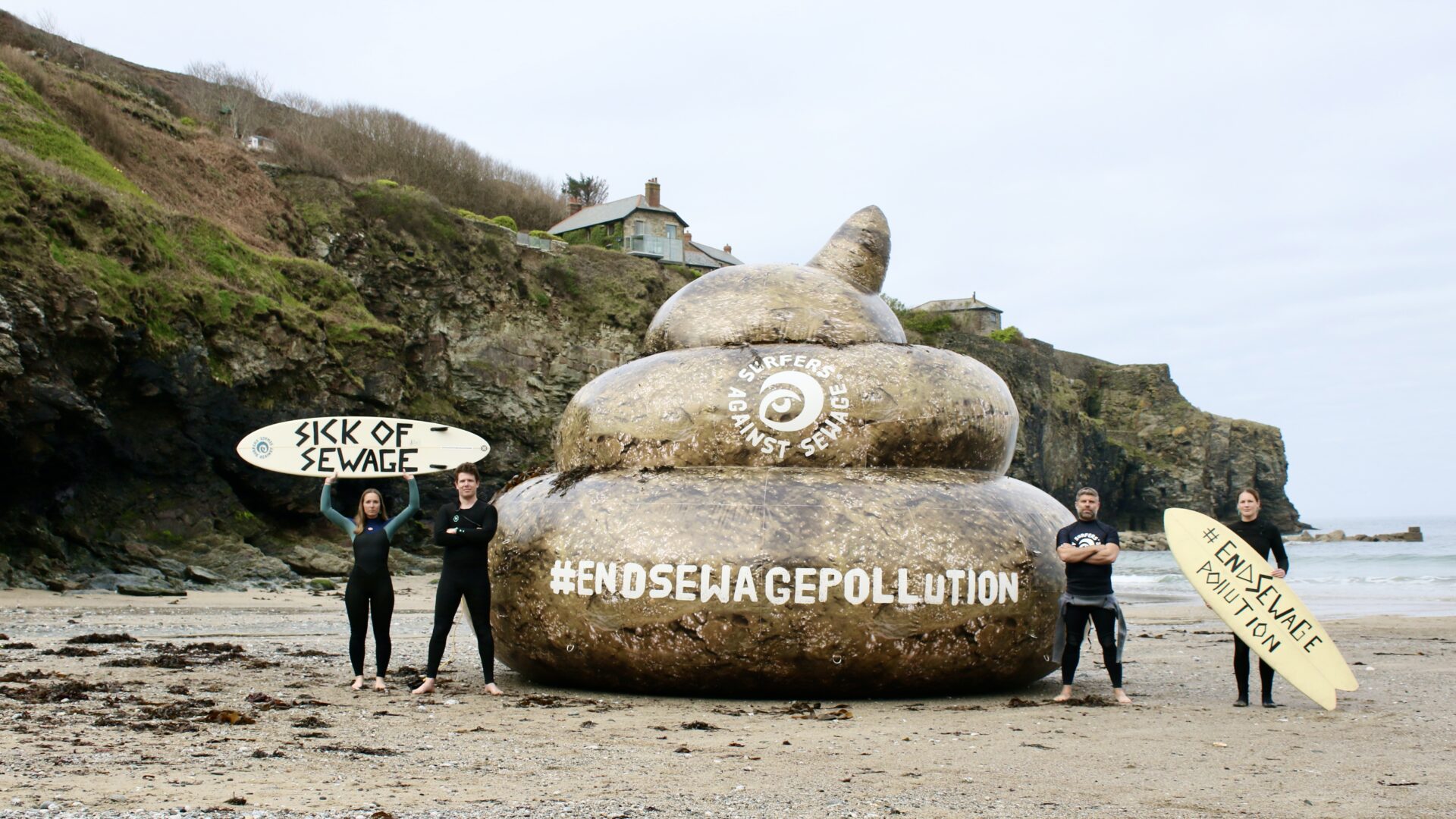
The Independent Water Commission’s report fails to tackle the sewage crisis
So we took our demands for clean water straight to Number 10. Here's what happened...
In July, the Independent Water Commission released its long-awaited recommendations for reforming England and Wales’ broken water system – the system responsible for the past 35 years of rampant pollution and rampant profiteering.
Established last year in response to mounting public pressure from campaigners like us, the Commission conducted the largest review of the industry since privatisation, receiving over 50,000 responses to its call for evidence, including our own. Publication of the report marks a major milestone for the campaign to end sewage pollution, with the government now expected to reform the sector to clean up rivers and seas across England and Wales.
Whilst we welcome some elements of the report, it still falls massively short of the transformational reform required to fix our broken sector. It utterly fails to prioritise public benefit over private profit.
The government and water companies may celebrate the report’s publication, but communities across the country who swim, surf, paddle, and walk by our rivers and coastlines know better. We aren’t alone in the fight- ahead of the report’s publication, we penned an open letter signed by nearly 40 environmental, sport, health and civil organisations, calling for bold action from the Government. That message still rings loud and clear.
So we took our demands to Downing Street
This week, we took our call for clean water directly to Number 10, alongside our friends at River Action. We met with the Prime Minister’s advisors to respond to the Water Commission’s final report and left no room for doubt about what must happen next: genuine reform of water companies and regulators that put the needs of people and the planet above private interests.
While departments like DEFRA and environment ministers play a role, the most critical decisions will ultimately be made by the Prime Minister and the Chancellor. In that room, we carried the voices of communities across the UK, all united by a single demand: it’s time to end sewage pollution once and for all.
See the report we handed advisors
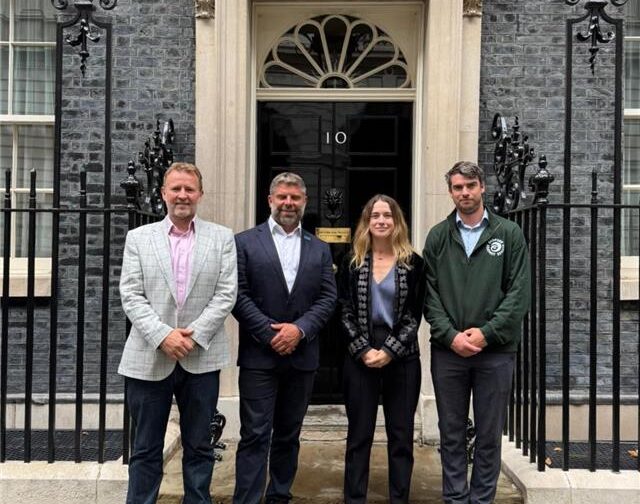
We delved into the mammoth 460-page report (so you don’t have to), uncovering the key points from the 88 recommendations. Whilst the Commission made some mildly encouraging nods, such as calls for a national strategy and regional water planning, its failure to address the core structural failures of the industry makes the report fatally flawed. And that’s the message we took to Downing Street.
Let’s break it down:
What’s missing from the report?
🚫 No real structural reform. Water companies will still be allowed to prioritise shareholders over the public.
🚫 The report tweaks water company licences – but keeps profit as a key goal.
🚫 No use of Special Administration powers to fix failing companies.
🚫 Fails to confront the toxic financial culture enabled by Ofwat.
🚫 Still allows self-monitoring – the same failed system that’s let pollution thrive for decades.
What the report got right, but not right enough
✅ A National Water Strategy – long overdue and an essential first step
✅ 8 new regional water planning bodies – a step toward public involvement, but only if they’re given real power.
✅ Recognition that short term investors are using water companies to get rich quick at the expense of the environment
✅ A new public health target in water law – something we’ve long demanded to better protect swimmers and communities.
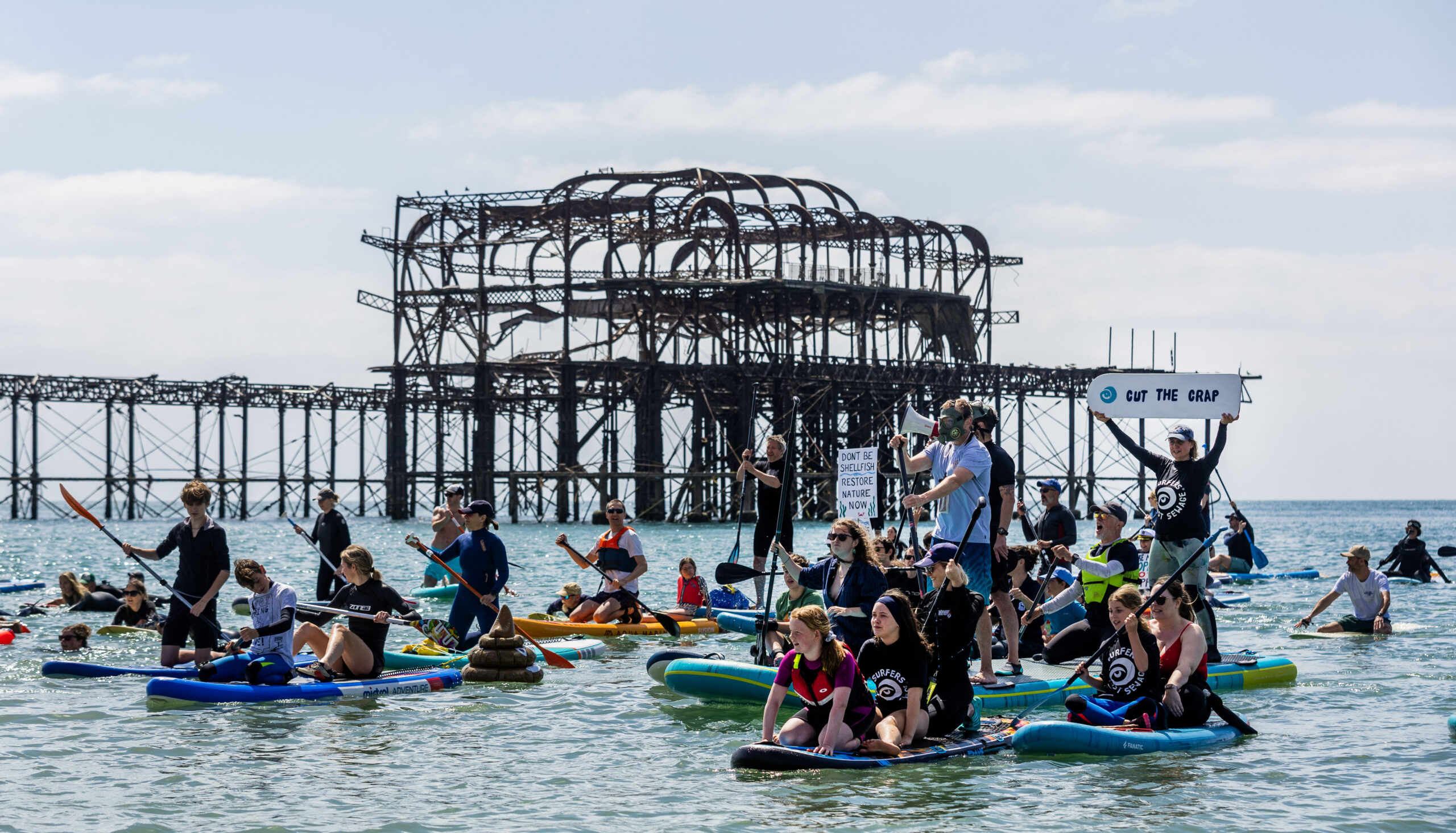
Photo by David McHugh / Brighton Pictures
Ditching Ofwat for a new ‘super’ regulator
A key recommendation in the report that the Government has already actioned is the abolition of the failing water regulator, Ofwat. We have campaigned hard for better regulation, and if this is done effectively, we could see the regulator be stronger in holding polluters to account and protecting public and environment health. But, and it’s a big but, abolishing Ofwat and replacing it with a shinier regulator won’t stop sewage dumping or profiteering if the finance and ownership structures stay the same.
What happens next with the report?
The Commission’s report is just that: a report that lays out 88 recommendations. It’s now over to Keir Starmer, Steve Reed and the Labour Government to take these recommendations and turn them into reforms. What we know so far is that they will be taking forward the recommendation to abolish Ofwat, end operator self-monitoring and allow a more regional approach to regulation and planning.
Next steps:
- A full response will be published by the Government in the Autumn, alongside a public consultation into what action the Government plans to take next
- The Government will bring forward a Water Reform Bill to parliament to bring these changes into law- the timing is unclear on this, but we expect it to be this time next year.
What needs to happen
We’re demanding bold, systemic transformation. Not half-measures or repackaged PR spin. The government must:
- Restructure the water industry to operate for public good, not private profit.
- Intervene in failing companies using the Special Administration Regime.
- Democratise governance with real decision making power for environmental groups, customers, and local government.
- Give real funding and powers to the new regulators to protect public health and enforce the law
- Ensure full transparency and reveal the truth by monitoring our waters year round and ending water companies marking themselves.
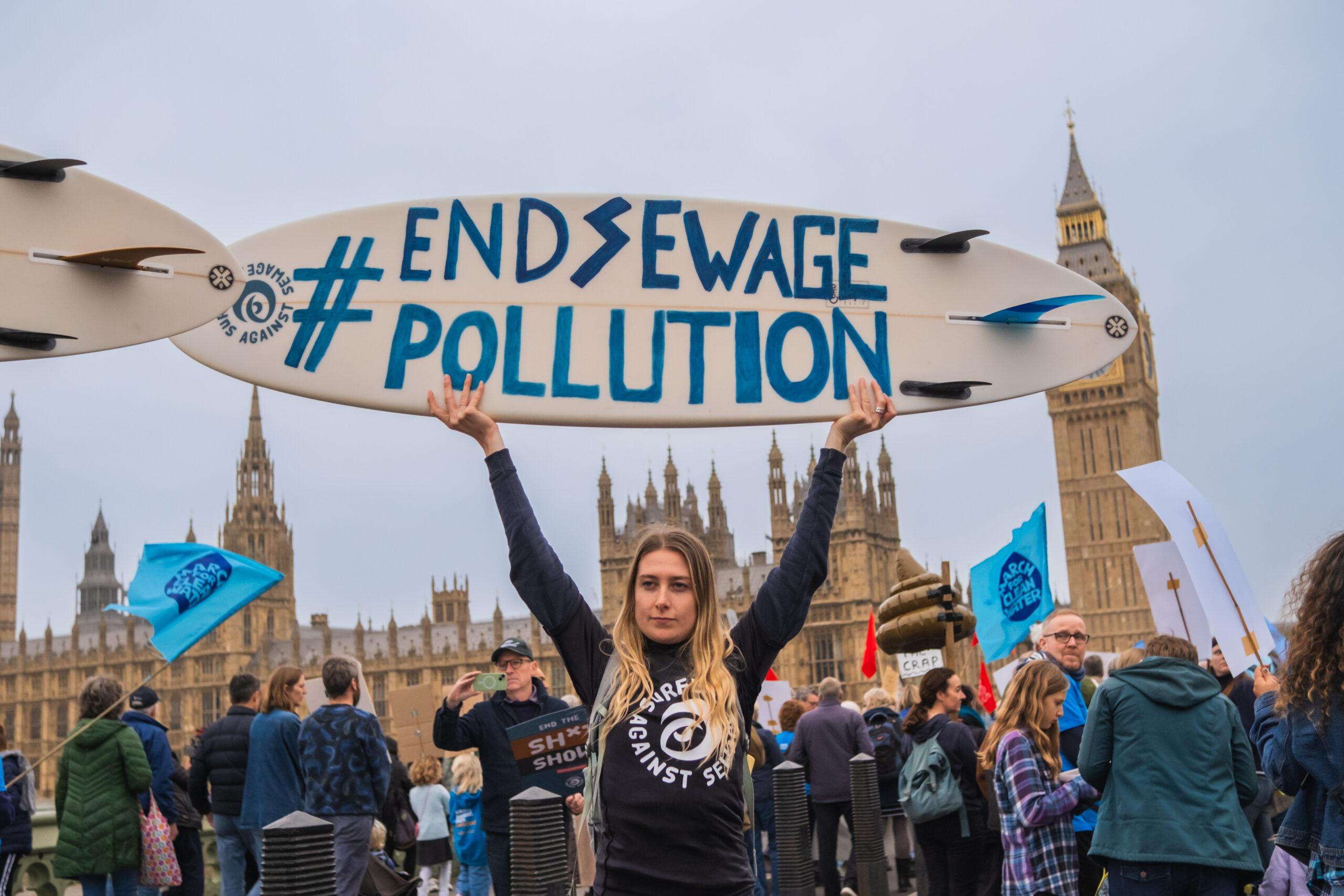
But what about nationalisation?
Sir Jon, the Commission and Government have made it very clear that nationalisation is off the table for our water industry.
Surfers Against Sewage is not calling for nationalisation, but for an ownership model and financial structure that puts people and the planet before private profit.
Once water companies have delivered public benefit, improved the environment and removed the threat of our waters to public health, THEN they can go ahead and make some profit or pay some money to shareholders. But this can only happen if and when the public benefit has been delivered.
What do the recommendations mean for Wales?
There has been a failure of regulation in Wales from both the environment and economic regulator. Natural Resources Wales (NRW) has had huge budget cuts and is failing on its obligations. As a not-for-profit, Dwr Cymru should be operating to deliver public benefit for the people of Wales but its high debt costs and opaque structures mean it is failing to deliver.
The Commission’s recommendations for reforming the regulators in Wales will be a step in the right direction but the regulator must have the resources and powers it needs to take action, and hold water companies in Wales to account.
- The report calls to integrate Ofwat’s financial responsibilities into Natural Resources Wales (Wales’s equivalent to the EA)
- It also calls for one planning authority for the Welsh water system – this mirrors the 8 regional bodies proposed for England.
- Recommends that the Welsh Government review and reform their own social tariff scheme for water bills – calls for the creation of a ‘national social tariff.’
- Calls for expanding the role of the voluntary Consumer Council for Water into an ombudsman to give stronger protection to customers and clear route to resolve complaints.
- Directs the Welsh Government to publish a new long-term National Water Strategy for Wales (similar to what it suggests Westminster do for England) – minimum horizon of 25 years with interim milestones.
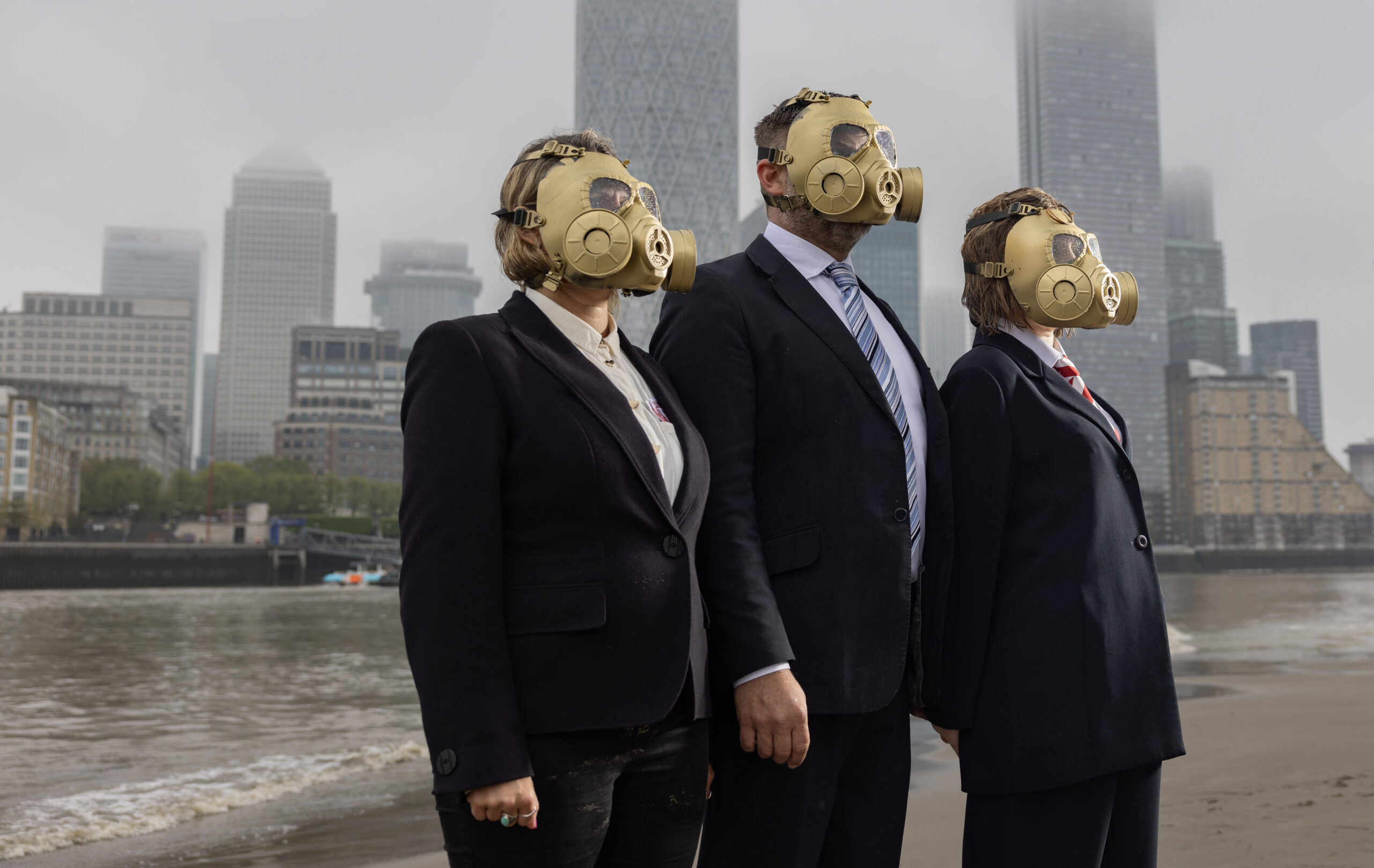
The cold, hard facts
📉 Since 1990, water companies have paid £74 billion to shareholders – while loading up £69 billion in debt.
💩 In 2024, 565,383 sewage spills were recorded across England and Wales – that’s more than 64 an hour. Serious pollution incidents also rose by 60% last year rather than meeting reduction targets.
💸 35p in every £1 of your water bill goes to service debt or fund dividends, not fix the pipes.
😡 Over 1 in 4 people in England have considered withholding their water bill in protest.
🤢 Only 1 in 3 believe their water company will take action to stop sewage pollution.
Join us in the fight
This is a huge moment in our campaign for clean water. But the fight is far from over. We’ll be analysing the Commission’s report in detail, continuing to pile the pressure on politically, and spotlighting the sewage scandal in the media. You can join us by:
👉Email your MP and demand an end to sewage pollution: The government could backbench rebellion on the issue of water quality – let’s keep the pressure on.
👉Become a member: All of our work – investigations, media exposés, and relentless public pressure – is powered by our members. Every penny goes towards fuelling the fight for cleaner seas, rivers and lakes. Join today and help fuel the next phase of our fight.
